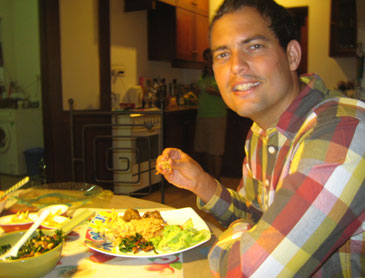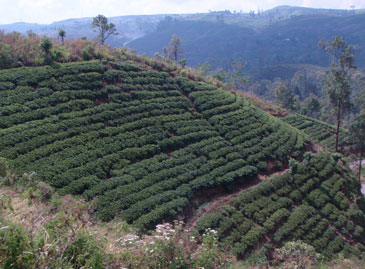Postal address: Institutionen för tillämpad utbildningsvetenskap, Umeå University, SE-901 87 Umeå
Visiting address: Naturvetarhuset, Johan Bures väg
Web page: http://www.edusci.umu.se/english/
Contact persons: Associate Professor Pär Segerbrant, phone: +46 (0)90 786 9391
Asociate Professor Leif Marklund, phone: +46 (0)90 7867483
The Department of Applied Educational Science was formed as a result of a merger between the former departments of Child and Youth education, Special Education and Counseling (BUSV), Interactive Media and Learning (IML), Applied Educational Science/ Department of Educational Measurement (BVM) and Umeå Centre for Evaluation Research (UCER).
Within the Department of Applied Educational Science studies are being conducted on conditions for learning in social, cultural and institutional settings, the contribution to and effects of digital technology on learning as well as measurement, assessment and evaluation.
The department has three strong research areas: Interactive Media and Learning, Measurement and Evaluation and Youth education, career development and welfare.
South Asia related activities
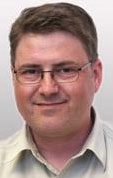
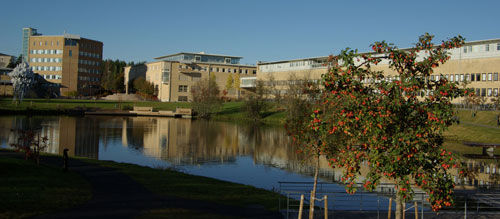 In 2009, Pär Segerbrant (photo) initiated an educational exchange project between IML and the University of Colombo, Sri Lanka. It is based on experiences from a project on E-learning that has been supported for several years through the Swedish Program for ICT in Developing Regions (SPIDER), and was being coordinated by the KTH Royal Institute of Technology in Stockholm. The programme involved the supervision of a ‘split’ PhD study into assessment practices for Srilankan PhD candidates on a large distance education BSc programme in Information Technology at diferent Swedish universities, and other Swedish-Srilankan collaboration projects. Professor Brian Hudson was involved in these projects that were carried out in collaboration with the National E-learning Centre of Sri Lanka (based at the University of Colombo School of Computing, UCSC). More information.
In 2009, Pär Segerbrant (photo) initiated an educational exchange project between IML and the University of Colombo, Sri Lanka. It is based on experiences from a project on E-learning that has been supported for several years through the Swedish Program for ICT in Developing Regions (SPIDER), and was being coordinated by the KTH Royal Institute of Technology in Stockholm. The programme involved the supervision of a ‘split’ PhD study into assessment practices for Srilankan PhD candidates on a large distance education BSc programme in Information Technology at diferent Swedish universities, and other Swedish-Srilankan collaboration projects. Professor Brian Hudson was involved in these projects that were carried out in collaboration with the National E-learning Centre of Sri Lanka (based at the University of Colombo School of Computing, UCSC). More information.
 IML has a strong connection to UCSC. This is partly due to a Srilankan guest researcher Hakim Usoof, who completed his doctoral studies at Umeå University in 2012. He defended his doctoral dissertation entitled ”Designing for eAssessment of Higher Order Thinking – An Undergraduate IT Online Distance Education Course in Sri Lanka” on 7 September 2012. Abstract and full text can be reached here. Dr. Usoof now is a Lecturer at the University of Colombo School of Computing in Sri Lanka.
IML has a strong connection to UCSC. This is partly due to a Srilankan guest researcher Hakim Usoof, who completed his doctoral studies at Umeå University in 2012. He defended his doctoral dissertation entitled ”Designing for eAssessment of Higher Order Thinking – An Undergraduate IT Online Distance Education Course in Sri Lanka” on 7 September 2012. Abstract and full text can be reached here. Dr. Usoof now is a Lecturer at the University of Colombo School of Computing in Sri Lanka.
The thesis offers an insight into the process of designing and evaluation of a technology aided formative assessment model for an IT online distance education degree programme. The study focuses on a design process that is primarily driven by pedagogical underpinnings which influence the design and use of technology for the purpose of assessment for learning. The study is divided into two parts. The first addresses the issue of plagiarism in distance education and the second addresses the use of technology for learning and assessment with a focus on the development of higher order thinking in collaborative learning environments. Faculty opponent was Professor Emeritus Patrick Dillon, University of Exeter, UK. Dr. Usoof is now back at University of Colombo School of Computing. More information.
The department also has had a Sri Lanka Study Group involved in the e-Jump 2.0 project working across three courses and engaged in a process of conducting action research. This involves several staff members and doctoral students from UCSC and also the Swedish coordinator for SPIDER based at DSV/KTH, with Hakim Usoof acting as a local pedagogical study supervisor. There are over 120 participants and about 20 tutors from West and East Europe, Central Asia, the Far East and China involved in this project and the ELGG-based social networking community environment is working in interesting ways. More information.
Linnaeus Palme collaboration with Sri Lanka
In March 2009, the Swedish International Programme Office for Education and Training decided upon the ninth round of Linnaeus Palme Exchange Programme grants, for the period 1 July 2009 – 30 June 2010. One of the new projects for that year was the collaboration between IML, UCSC and the Dept. of Computer Science, Umeå University. In 2012 the project received continued funding with SEK 30 826 for the period 2012-13.
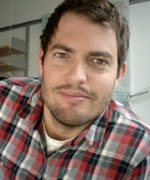 In Umeå, Associate Professor Leif Marklund (photo) coordinates the exchange programme, and he spent time in Sri Lanka during the spring 2012, teaching a course entitled ”Videogames and learning 1”. In 2013, another Umeå staff has gone to Sri Lanka, Associate Professor Christer Lindwall.
In Umeå, Associate Professor Leif Marklund (photo) coordinates the exchange programme, and he spent time in Sri Lanka during the spring 2012, teaching a course entitled ”Videogames and learning 1”. In 2013, another Umeå staff has gone to Sri Lanka, Associate Professor Christer Lindwall.
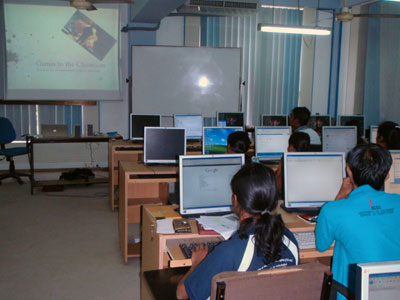 The contact person on the Srilankan side is Dr. Ruvan Weerasinghe at the University of Colombo School of Computing. He has served on various committees and boards at the University Grants Commission, Ministry of Education and the Information and Communication Technology Agency of Sri Lanka in this capacity over the years. He was also part of the original group involved in introducing Internet and email connectivity to the universities and the country as a whole through the Lanka Education And Research Network and the former Council for Information Technology.
The contact person on the Srilankan side is Dr. Ruvan Weerasinghe at the University of Colombo School of Computing. He has served on various committees and boards at the University Grants Commission, Ministry of Education and the Information and Communication Technology Agency of Sri Lanka in this capacity over the years. He was also part of the original group involved in introducing Internet and email connectivity to the universities and the country as a whole through the Lanka Education And Research Network and the former Council for Information Technology.
Another teacher at Colombo School of Engineering that is directly involved in the exchange activities is Senior Lecturer Anuja Dharmaratne.
The aim is to build a long term exchange of teachers and most important students around the subject area of pedagogy of computer science with the following special strands: – Pedagogical issues in computer science education; – ICT-education in upper secondary school and teacher education; – Distance education in computer science education at undergraduate and master level; and – Joint degrees or coordinated courses at all levels of education. Read a report on the Linnaeus Palme collaboration, written by Leif Marklund in February 2012.
The project has received continued funding for 2015-16 with SEK 113 974. More information about South Asia related Linnaeus Palme programme grants for 2015-16.
